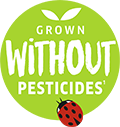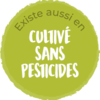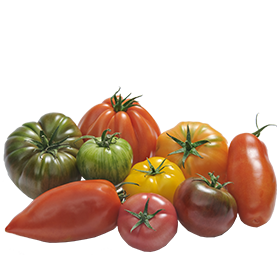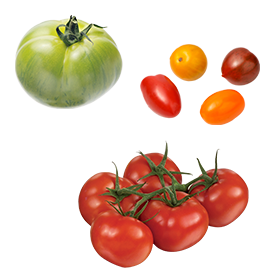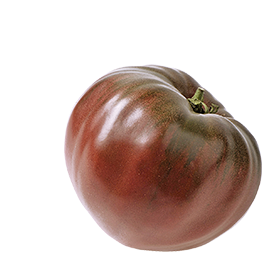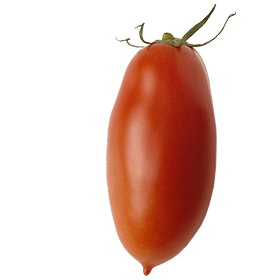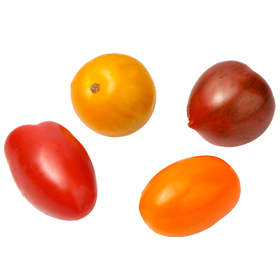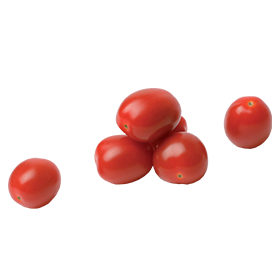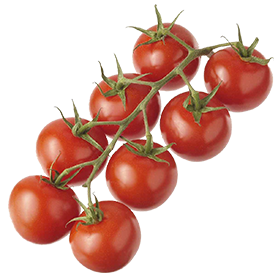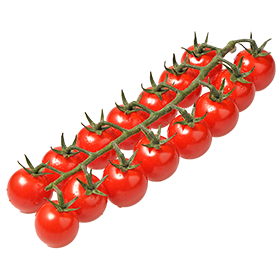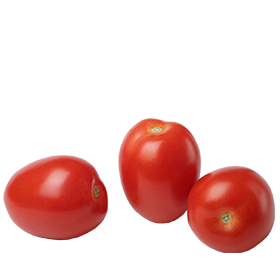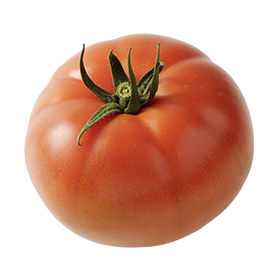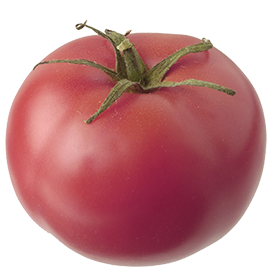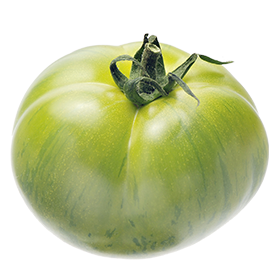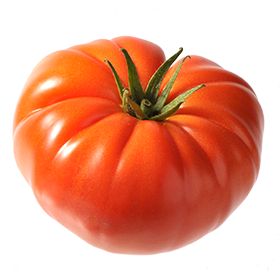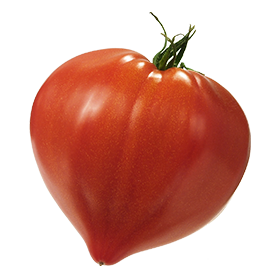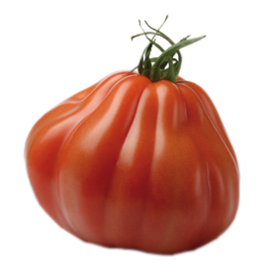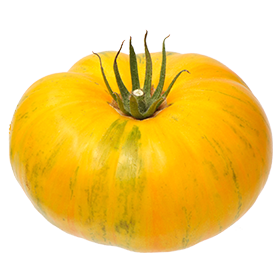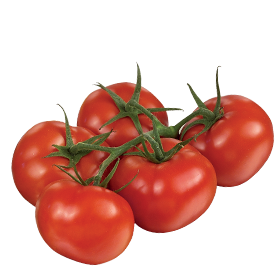The programme
Committed for many years to the production of vegetables using ever-more healthy and sustainable agricultural practices, Prince de Bretagne’s market gardeners offer a range of vegetables grown without synthetic pesticides. This presents real daily challenges, but these demanding progress strategies meet the demand for a new agriculture that is more sustainable and offers greater respect for the environment.
Launched for tomatoes in 2017, the range expanded in 2018 with the addition of broccoli, Potimarron squash, shallots, Romanesco and cauliflower.
OUR OBJECTIVE: Increasing the share of vegetables grown without pesticides to 20% of our total volume by 2030
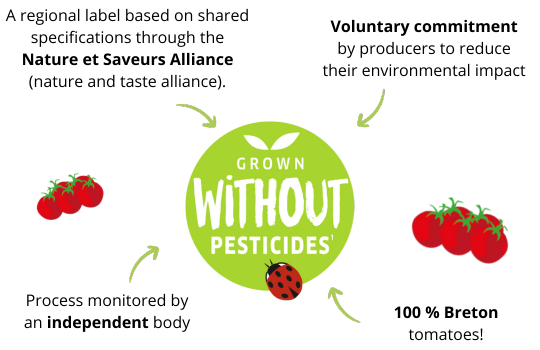
Tomatoes
After the launch of a range grown without pesticides in 2017, Prince de Bretagne’s tomato producers renewed their commitment in 2019 and sought to provide consumers with more clarity through the creation of a regional ‘Grown without pesticides’ label.
This label is based on shared specifications through the Nature et Saveurs Alliance (nature and taste alliance).
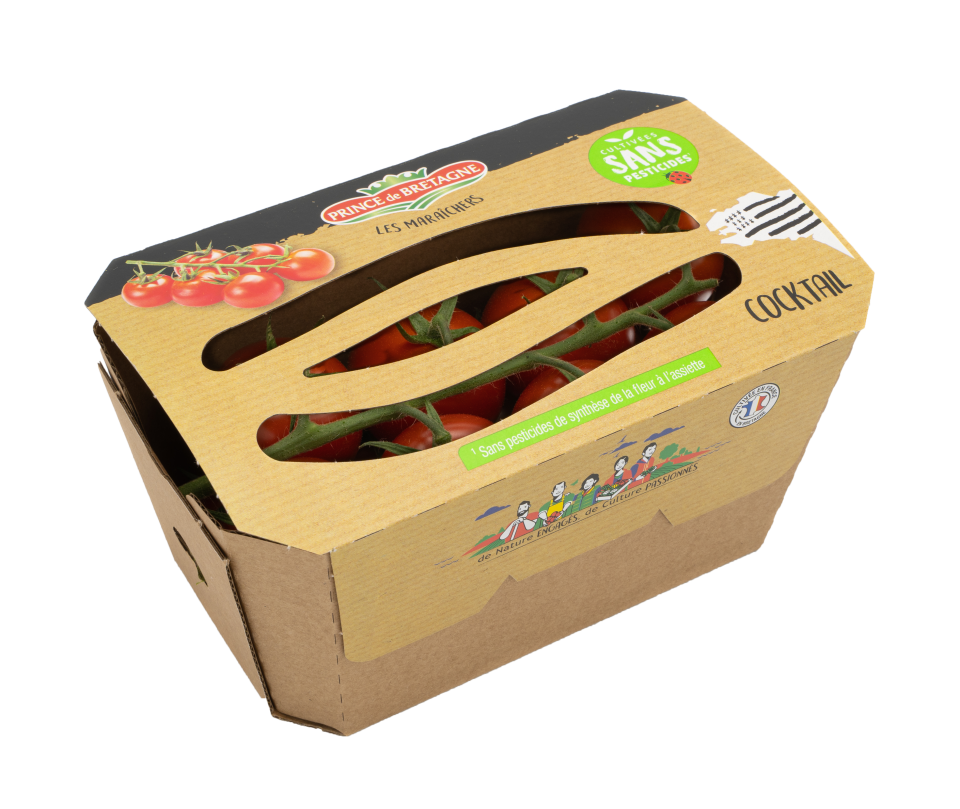
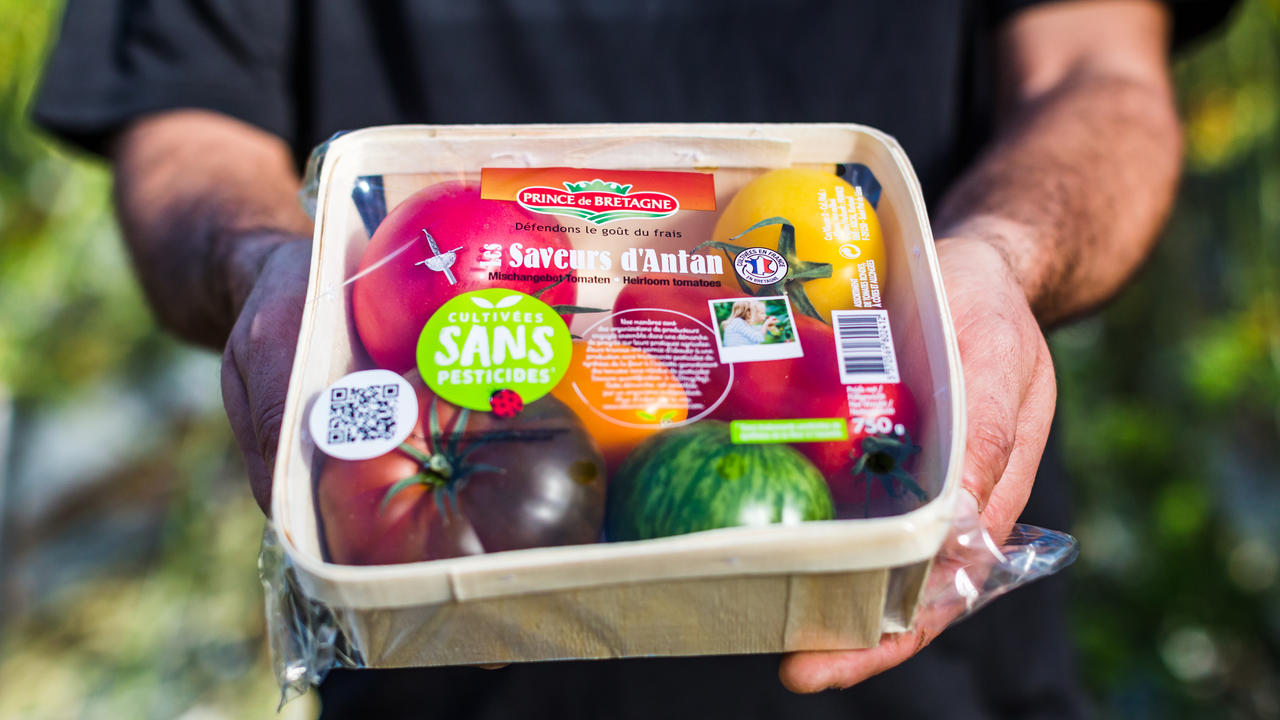
Everything you need to know about our tomato range
grown without synthetic pesticides
What is the Nature et Saveurs Alliance?
Our members are groups of producers collectively committed to the process of developing their agricultural practices. Through their work they can produce tomatoes free of synthetic pesticide treatments from flowering to plate, guaranteeing tomatoes with no synthetic pesticide residues (less than > 0.01 mg/kg). This programme is monitored by an independent organisation.
-
A progress strategy initiated by producers
-
Production without pesticide treatments
-
Guarantees tomatoes free of pesticide residues
-
Monitored by an external, independent organisation
Prince de Bretagne tomatoes grown without pesticides
-
A complete range including the essentials (vine, round etc.), small fruits (cherries and cocktails) as well as Saveurs d’Antan traditional tomatoes.
-
A gradual move towards recyclable packaging. Loose boxes, i.e. nearly 80% of volumes, are made of wood or cardboard and since 2018 plastic trays have been gradually replaced by recyclable cardboard trays. By 2020, around 139 tonnes of plastic had been saved per year.

